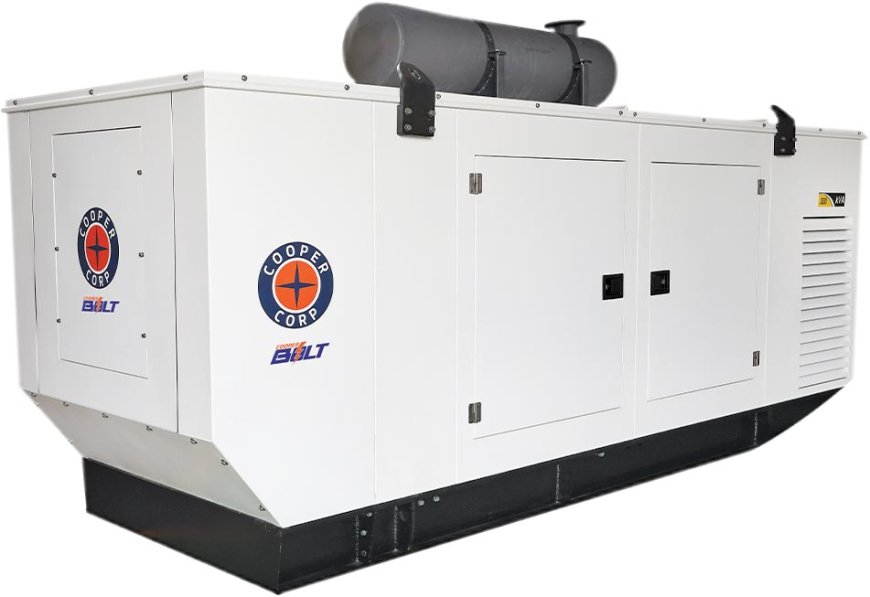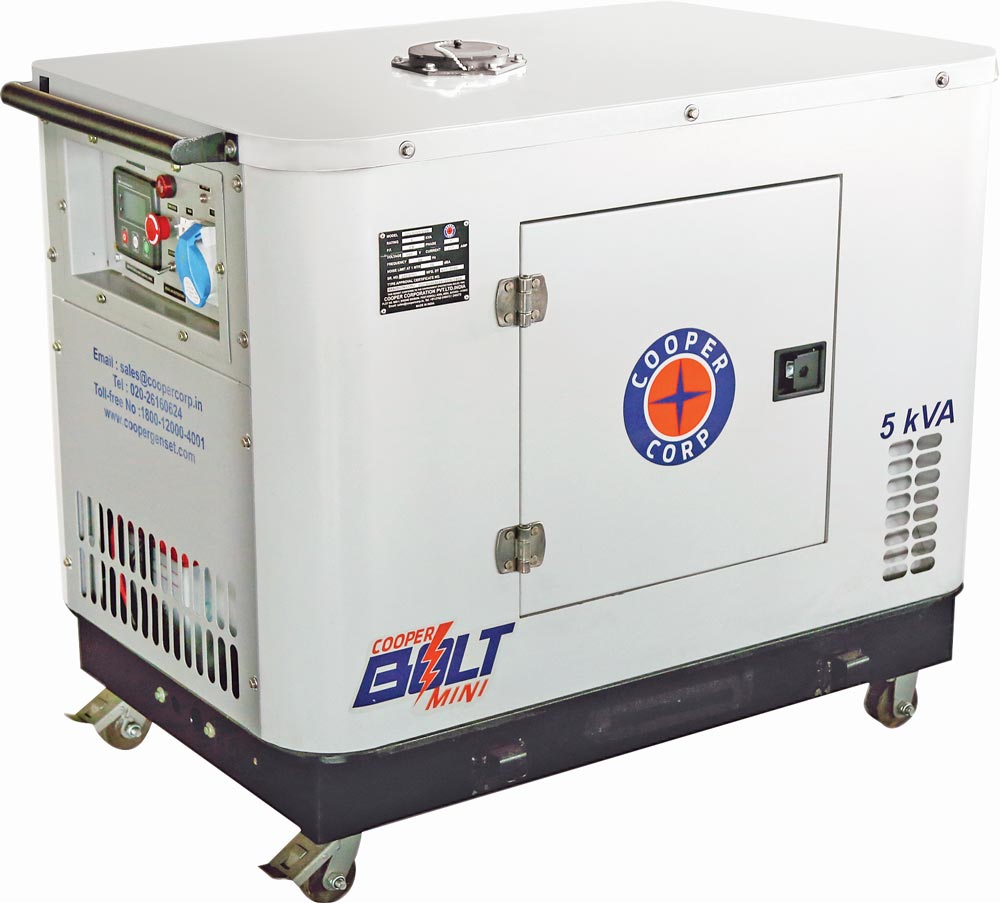The ongoing infrastructure development in developing countries will boost the 75-375 kVA market share.
Farrokh Cooper Chairman & Managing Director, Cooper Corporation What are the demand-supply scenario and potential for gensets used in a range of applications such as mining, oil & gas, telecom, construction, data centre


– Farrokh Cooper
Chairman & Managing Director, Cooper Corporation
What are the demand-supply scenario and potential for gensets used in a range of applications such as mining, oil & gas, telecom, construction, data centre and healthcare sector?
The genset market in India is now expanding because of the growing manufacturing sector & rising need for power for commercial applications. Due to the widespread usage of these gensets in commercial applications such as retail outlets, hotels, telecom towers, offices, and malls, the 5 kVA-75 kVA genset category maintained a significant market share. Increased investment in the telecom sector, the rapid growth of commercial infrastructure, and rising demand for backup & prime power in residential facilities, in my opinion, are driving demand for generators.
Furthermore, the pandemic crisis, which has been accompanied by multiple phases of lockdown and unlocking, has highlighted the importance of having an uninterrupted power supply. Residential societies, small clinics, stand-alone restaurants, stand-alone offices/retail stores, bungalows, farmhouses, and construction sites, among other services, require a continuous power supply. We introduced future-ready 5 kVA compact diesel gensets to address the issue of consistent power sources. The 5 kVA compact genset – Cooper Bolt Mini – incorporates the contemporary air-cooled engine designed by Ricardo, PLC with whom Cooper has a technical collaboration for designing its state-of-the-art family of engines. Also, we are planning to launch a 500 kVA engine genset this year. This has been designed by Ricardo, PLC, and comes future emission ready with the lowest ownership cost in its class.
How do you see the growth of hybrid systems and how prepared are you to meet the demand surge?
Yes, we are well prepared to incorporate hybrid energy systems in our manufacturing plants when the time arises. However, Cooper engine models are known in the market for their compact size, best-in-class fuel efficiency and lowest maintenance costs. Hybrid systems are a game changer in our industry. Hybrid energy systems can generate round-the-clock power with cost and reliability levels comparable to gas or diesel plants. Hybrid systems are expected to become increasingly cost-competitive, driven by reducing battery storage and solar energy costs. However, hybrid systems are currently costly due to import duties; if costs come down, there is a better possibility they will be well utilised.
What are the technological and innovative trends in your range of gensets?
Currently, we offer 24 variants of Cooper engines ranging from 8 hp to 1000 hp, backed by engineering excellence, which can perform at a high altitude of 4,100 m, can run at +55oC and -20oC, relentless innovation, and a commitment to quality. These engines are equipped with fully electronic management. They are compact, have a high power-to-weight ratio, and are fuel-efficient. These engines have a robust design with extended maintenance intervals and a high-power density. For LPG and CNG engines, the company has specially designed pistons and ring packs.
We design diesel-powered generators that redefine performance efficiency. Our ECOPACK range of DG sets redefines performance efficiency. It is fitted with our four-stroke liquid-cooled gas engines and further equipped with Common Rail Direct Injection (CRDi) technology developed in partnership with Ricardo, PLC. They are fitted with ECU and optimal remote control ECU modules that control all critical engine functions and parameters. The noise levels of our generators range from 75-57 dbA at one metre under free field conditions, much less than any of our competition. Also, they are Euro IV, US Tier IV (interim) and CPCB 2 compliant. We also specialise in super silent gas-powered generators, with power ranging from 10 kVA-140 kVA (1.2L to 7.8L). Our ECOPACK series of gas-powered generators run on a 2, 3, 4 and 6 cylinder, in-line, 4-stroke Cooper-make LPG gas engine, developed as per state-of-the-art CRDi technology.
How do you access the market for rentals of gensets?
Power rental, also known as power on hire, has had numerous advantages and disadvantages in the industry over the years. One of the reasons why the generator rental business is appealing is its growth potential. Furthermore, various applications in residential, commercial, and industrial establishments require either prime power or standby power to ensure operational continuity. The generator rental business is driven by applications in various industries such as telecommunications, event management, healthcare, power utilities, offshore, oil & gas, mining, infrastructure, shipping, natural disasters, and construction. The decision to rent a generator is made in areas where there are scheduled or unscheduled power outages, internal power system breakdowns, and a need for standby power. Businesses use rented gensets as a strategic tool depending on the prevailing circumstances.
What are the risks/challenges associated with the gensets market? What are the suggestions to overcome these challenges?
Diesel gensets have proliferated as the primary alternative for reliable mobile, stationary, or temporary on-site electricity over the last decade. The tightening of emission regulations, environmental concerns and plummeting of renewable energy costs are placing increased pressure on the diesel genset industry. As generator producers and suppliers look to adapt to a changing energy environment, several important technological developments will play a crucial role in shaping future use.
Ongoing infrastructure development in developing countries of because of major investments in the construction sector will boost the 75-375 kVA market share. Generator sets are required in the construction sector to provide an uninterrupted power source for equipment and job site tools. Furthermore, the lack of electricity in remote and off-grid locations, coupled with unprecedented storms, makes these units a critical source of emergency power supply.
Also, gas generator sets market revenue is anticipated to rise due to consumer inclination towards energy security, independence from fossil fuel consumption, and owing to stringent emissions-based regulations. The prime power generator sets market is set to witness over 8% CAGR between 2020 – 2030. Emerging economies are aiming for dynamically improved rates of electrification in turn empowering the mass deployment of these units. In future, the exponential infrastructure development, coupled with mounting urbanisation, is predicted to augur well for the diesel generator market.

Hits: 32








